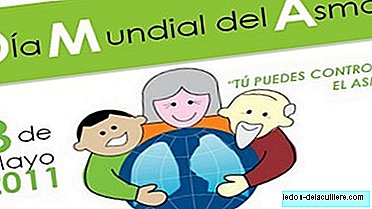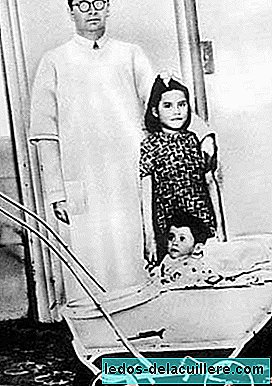
Today may 3 World Asthma Day is celebrated, under the auspices of the World Health Organization, with the same motto as in the previous three years: "You can control your asthma" (You can control your asthma), which aims to stimulate patients to take an active part in the control of their disease.
Every first Tuesday in May we try to raise awareness and remember that there are more than 150 million people affected in the world, many of them children. Not surprisingly, asthma is the most common disease in childhood, and the number of affected children grows every year.
The organization GINA (Global Initiative for Asthma, Global Initiative Against Asthma) is the one that promotes this celebration, and coinciding with this date, launches the second stage of the Campaign: "Reduce hospitalizations to 50% in 5 years".
On the occasion of this day we wanted to remind you of the ten data on asthma presented by WHO, the guide for asthmatic patients "Controlling asthma", and present the document "Five positive steps to reduce the impact of asthma", from the portal on asthma in children and adolescents "Breathe":
Ask your doctor for a personalized written treatment for your asthma control, to develop an effective treatment plan that includes appropriate medications and that suits your schedule and lifestyle. The personal asthma treatment plan must be written and include both the medications to be taken and the triggers to avoid. Follow the plan carefully to prevent your asthma from getting worse.
Take the medications prescribed by your doctor. People with asthma should use a medicine to relieve symptoms and, in many cases, another medicine to continuously control the inflammation of the airways.
Avoid the factors that can trigger asthma attacks. Discover allergens, irritants and other circumstances that can trigger an asthma crisis and take all possible measures to avoid them.
Learn to recognize the symptoms of asthmatic crisis. Learn to recognize the signs that indicate the worsening of asthma, such as increased cough, chest tightness, whistles or wheezing, difficulty breathing, nighttime awakening due to asthma or lowering your expiratory flow value maximum. Write down the hours of the day when your symptoms tend to get worse.
Know what you should do in case of an asthma crisis. Never underestimate the severity of an asthma attack. Always have on hand the recommendations written by your doctor in case you have a crisis, and when it occurs, try to remain calm and follow its instructions, including when to seek medical assistance.
These tips will help families to better control the disease, which affects many children in our environment, and improve their living conditions, so it is important that they are known to those affected and their families.
We hope this World Asthma Day 2011 serve to highlight the importance of these recommendations and to preserve the respiratory health of our children and the environmental health of the planet.












